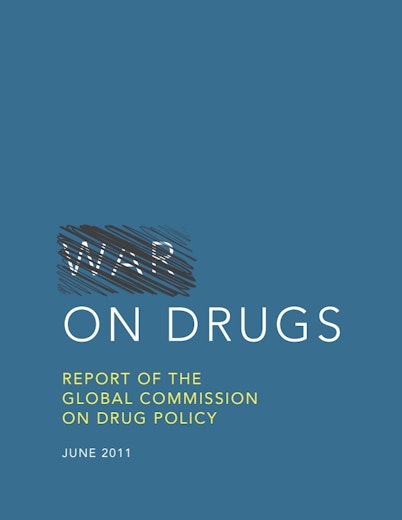Drug Policies Should Be Based on Public Health and Human Rights
By Adri Bruckner
First published on the Central European University School of Public Policy website.
Policy must shift away from the punitive approach of the ‘war on drugs’ to treating drug use as a public health issue, according to prominent panelists at the first in a series of debates hosted by CEU’s School of Public Policy in collaboration with the Open Society Foundations’ Global Drug Policy Program.
“The war on drugs has created additional problems that are very severe and have done a great deal of harm,” said CEU Founder and Honorary Chairman George Soros, who opened the session, entitled Drugs: It’s About Health, Not Policing. “Treating it as a public health problem is preferable to the war on drugs.”
The war on drugs is, in fact, a failure, the panelists concluded. Drug use is still on the rise; too many people are incarcerated or even tortured for minor offenses, and HIV infection rates are still rising among drug users in many countries.
“We know that the epidemic can be prevented, with harm reduction,” said Dr. Michel Kazatchkine, member of the Global Commission on Drug Policy and U.N. Special Envoy for HIV/AIDS in Eastern Europe and Central Asia. “Harm reduction is a set of interventions: providing free needles and syringes, substitute therapy, informing people, involving people in the decision-making process. I can’t understand how people ignore this evidence.”
In Switzerland, harm reduction has gone beyond providing free sterile needles. The Swiss policy includes support for heroin addicts, providing them with a supervised space where they can inject safely. The policy was developed as a practical, effective response to a public safety problem, according to Roger Flury, an officer of the Federal Criminal Police of Switzerland, and police liaison to the Czech Republic, Hungary, Poland and Slovakia at the Embassy of Switzerland in Prague.
“The majority of (Swiss) police support the current policy,” Flury said. “It is tolerated because it brought changes that are favorable to public safety. Police cannot stop everyone from using drugs. What we can influence is where drugs are used. Scattered all over the streets? Near schools? Public spaces? Or within a confined, defined space where it is tolerated, outside the view of the general public.”
Fortunately, in recent years, many former leaders who acted as ‘drug warriors’ while in office, have become advocates of harm reduction. Former Brazilian President Fernando Henrique Cardoso, who brought the U.S. Drug Enforcement Agency to his country to help fight the ‘war on drugs’, now advocates harm reduction as a member of the Global Commission on Drug Policy. Poland’s Aleksander Kwasniewski, who signed a no-tolerance law in 2000, also joined the Commission. The former presidents of Mexico, Colombia and Portugal are also members.
“We showed President Kwasniewski the data,” said Kasia Malinowska-Sempruch, director of the OSF’s Global Drug Policy Program. “Once the data is there, it’s difficult to argue. So we convinced him to be on the Commission.”
Another piece of good news, Malinowska-Sempruch said, was that there are many current leaders who are starting this debate in their own countries, including Guatemala and Colombia. In Latin America, there is a growing feeling that policies imported from the U.S. are doing damage rather than good, giving leaders the opportunity to start the debate about new public health approaches.
In Europe, the current tense economic climate makes it difficult to introduce a sensitive debate on drug policy. It worked in Switzerland and Portugal via a progressive change in society, a democratic process. In Russia, the situation is not only unsuitable, but hostile, according to Kazatchkine.
“Russia is a country where you cannot democratically challenge what the powers say, even with evidence,” Kazatchkine said. He urged patience and persistence, with constant provision of concrete evidence that harm reduction offers a more promising route.
The discussion was moderated by Balazs Denes, executive director of the Hungarian Civil Liberties Union.
The next two discussions in the Global Drugs Policy Debate Series will focus on the international drug control system and on Drugs and development.
For information about future events, please visit the Central European University School of Public Policy website.
Adri Bruckner is digital content manager at Central European University.

